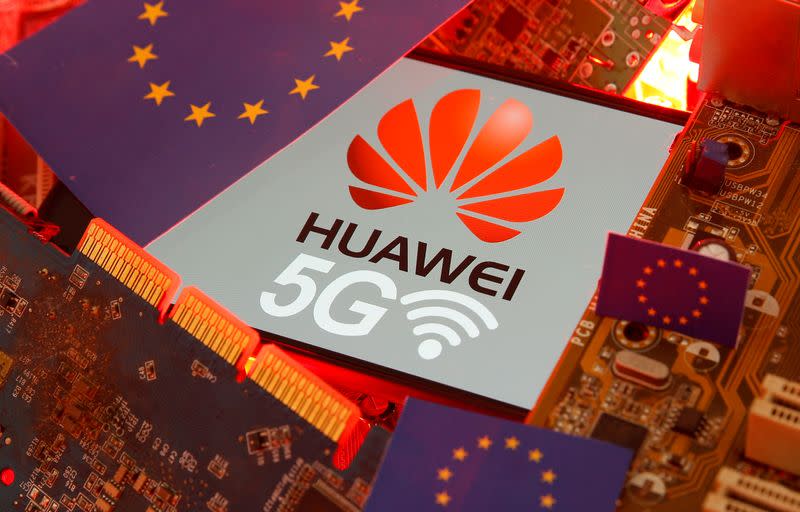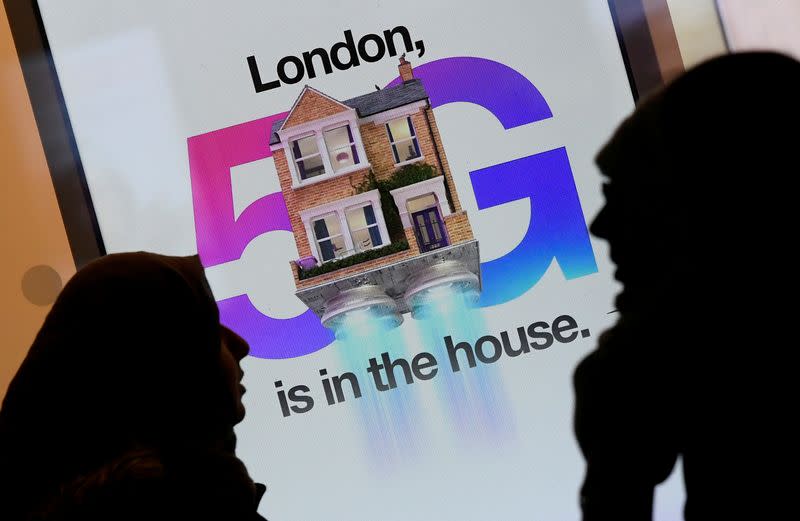EU countries can restrict or ban high risk 5G providers, impact on Huawei
By Foo Yun Chee
BRUSSELS (Reuters) - EU countries can restrict or ban high-risk 5G vendors from core parts of their telecoms networks, according to new EU guidelines announced on Wednesday, a move likely to hurt China's Huawei Technologies {HWT.UL} but unlikely to appease the United States.
The non-binding recommendations, agreed by the bloc's 28 countries, seek to tackle cybersecurity risks at national and EU level, with concerns mainly focused on Huawei, although the guidelines do not identify any particular country or company.
In what some have compared to the Cold War antagonism with the Soviet Union, the United States is worried that 5G dominance is a milestone towards Chinese technological supremacy that could define the geopolitics of the 21st century.
The U.S and the EU are also concerned about Chinese laws that require companies to assist in national intelligence work.
The EU sees 5G as key to boosting economic growth and competing with the United States and China. Huawei, the world's biggest producer of telecoms equipment, competes with Sweden's Ericsson and Finland's Nokia.
"Today we are equipping EU member states, telecoms operators and users with the tools to build and protect a European infrastructure with the highest security standards so we all fully benefit from the potential that 5G has to offer," Europe's industry chief Thierry Breton said in a statement.
The guidelines call on EU countries to assess the risk profile of suppliers on a national or EU level and allow them to exclude high risk suppliers for the core infrastructure, confirming a Reuters report on Jan. 22.
EU governments are also advised to use several 5G providers rather than depend on one company. The providers should be assessed on technical and non-technical factors including the risk of interference by state-backed companies.
The Commission said it was ready to bolster the bloc's 5G cybersecurity by using trade defence tools against dumping or foreign subsidies.
EU countries have until April to implement the guidelines by April and report on their progress by June.
The United States wants the bloc to ban Huawei on fears that its gear could be used by China for spying, allegations rejected by the company.
The EU, however, is hoping a collective approach based on a checklist of technical and non-technical risks and targeted measures will take some of the U.S. pressure off.
Britain on Tuesday opted to allow Huawei to supply equipment for non-sensitive parts of its 5G network rather than bow to U.S. pressure and ban the company completely.
(Reporting by Foo Yun Chee)



